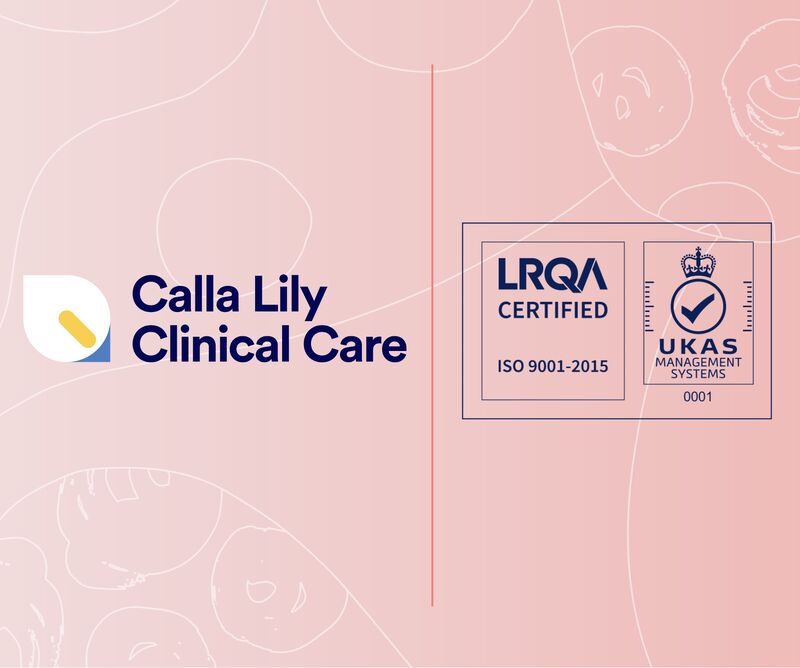The Importance of Vaginal Health— Why It Matters for Every Woman

Let’s be blunt—vaginal health isn’t a subject many are comfortable talking about (even in the U.S. and Europe).
Let’s also not forget I have an 11-year old male child who routinely asks me to “stop talking dirty” when I’m on a work call.
It’s also an issue for a lot of investors who don’t want to say the V-jay-jay word at their Monday morning portfolio review, which probably partly explains the funding crisis in women’s health.
But I’ll say it: Vagina. It’s an organ that is absolutely crucial for women’s overall health.
Whether you’re 25 or 75, caring for your vaginal health can have a profound impact on your life. It influences not just your reproductive health but also your emotional well-being, self-esteem, and satisfaction in the bedroom.
Despite the benefits of a healthy vagina, many women ignore this part of the body and only search out help when problems arise.
Here’s why when it comes to vaginas, a little attention goes a long way.
More Than Just Infections—The Bigger Picture
When we talk about vaginal health (or a lack thereof), the first thing that comes to mind is infections—itching, discharge, discomfort, and the like.
However, the importance of vaginal health runs much deeper.
The vagina is home to a complex system of bacteria (mainly Lactobacillus species) which maintain an acidic internal environment that wards off infection.
To better understand this, think of the vagina as a finely-tuned ecosystem where balance is maintained by mutually beneficial interactions between a woman and her resident microorganisms.
But this balance can easily be disrupted, with factors such as stress, diet, sexual activity, and hormonal shifts all playing a role.
And when your vaginal health suffers long-term neglect, perfectly treatable issues (like yeast infections and STIs) can become chronic infections with associated complications and risks.
Pelvic inflammatory disease (PID), for example, is often caused by unchecked chlamydia or gonorrhea infections that spread from the vagina to other reproductive organs.
Vaginal Health Affects Your Mental and Emotional Health
When your vaginal health is less than stellar, it can also take a toll on your mental health. Discomfort, itching, and chronic infections can make you feel self-conscious, anxious, and embarrassed.
Women with recurrent UTIs experience more emotional distress and anxiety which impacts their overall quality of life. In fact, in one study of U.S. and German women, participants reported that the mere prospect of a UTI coming back caused dread and helplessness.
Conversely, women who take an active role in maintaining their vaginal health report higher levels of sexual satisfaction, confidence, and self-esteem.
It’s a simple and well-understood relationship, but one that bears repeating: when you feel good about your body, you’re more likely to feel good in your mind.
Hormonal Shifts and Vaginal Health
Hormonal changes experienced during menstruation, pregnancy, and menopause also impact vaginal health.
Vulvovaginal atrophy (VVA) affects 50-60% of postmenopausal women and is associated with numerous symptoms such as dryness, burning, itching, and painful intercourse or urination.
Despite these symptoms substantially reducing quality of life, one study found that just 25% of women receive adequate treatment. Why? Because most are too embarrassed to discuss intimate complaints with a specialist, and others confuse the symptoms of VVA with the aging process. In other words, they just accept it.
DON’T.
Vaginal moisturizers, hormone replacement therapy and even physical activity can help mitigate these effects and improve the overall quality of life. So too, can more open discussions about vaginal health between women and their doctors.
Take Charge With Simple Habits That Yield Impressive Results
You don’t need an elaborate routine to keep your vagina healthy.
Often, the best strategy is a simple one that encourages you to make small, meaningful changes.
Ditch the douches
Up to 40% of American women between 15 and 44 use vaginal douches—even though their use is linked to an increased risk of bacterial vaginosis, PID, cervical cancer, and ectopic pregnancy.
Understand that your vagina is self-cleaning. Like an oven! Over-cleaning or using harsh products disrupts your natural pH balance which, as we learned earlier, can cause problems.
Stick to water and fragrance-free soap on the outside only—your vagina will take care of the rest.
Mind your diet
A healthy gut means a healthy vagina, but this means an unhealthy gut causes inflammation of the vagina. It also reduces estrogen levels—a hormone that helps create an environment where Lactobacillus can thrive.
Incorporating probiotics like yogurt or fermented foods into your diet helps maintain the balance of good bacteria in your vagina. And yes, drink plenty of water—hydration is key for every part of the body,
Stay active
Exercise isn’t just good for your heart—it improves circulation, which helps keep your vaginal tissues oxygenated and healthy.
Regular movement can also balance your hormones which help maintain vaginal health (especially during menopause).
Wear breathable, loose-fitting fabrics
Choose breathable, loose-fitting fabrics such as cotton that promote airflow, absorb moisture, and prevent excess heat and moisture..
Avoid synthetic materials like nylon. They trap moisture and can create an environment conducive to yeast infections or bacterial vaginosis.
Why Vaginal Health Needs to Be Discussed
The vagina–like its owner– always strives for balance. But this amazing organ can easily be upset by stress, hormonal imbalances, and a poor diet or lifestyle. When this happens, it can impact both your physical and mental health.
Nevertheless, many women find it difficult to discuss vaginal issues with their doctor. Remember that these conversations are not shameful but part of living a confident and empowered life.
It’s also vital to take proactive measures that maintain vaginal health. Clean up your diet, become more active, and wear appropriate attire to prevent a trip to the doctor in the first place.
Give your vagina the attention it deserves, and it’ll pay you back ten-fold.
References
https://journals.sagepub.com/doi/full/10.4137/IDRT.S3903
https://www.ncbi.nlm.nih.gov/pmc/articles/PMC9118576/
https://www.ncbi.nlm.nih.gov/pmc/articles/PMC6482896/
https://www.webmd.com/women/vaginal-douching-helpful-or-harmful
https://www.frontiersin.org/journals/medicine/articles/10.3389/fmed.2018.00181/full




